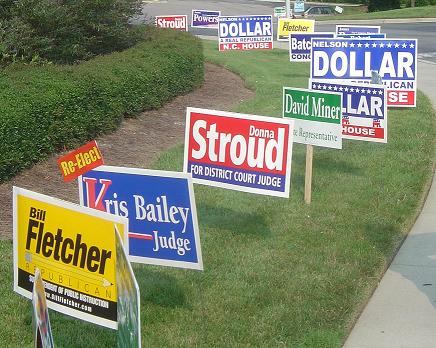New Orleans, La. and Washington, D.C. – The full Fifth Circuit Court of Appeals found today that Texas’s photo ID law, the strictest in the nation, is racially discriminatory. This marks the fourth court to find that the law has a disproportionate impact on African-American and Latino voters in Texas. However, Hopkins County Clerk Debbie Shirley told KSST News that almost every Hopkins County voter used their photo ID and not their voter registration card in the most recent elections.
Shirley said she didn’t think any Hopkins County citizen’s rights have been violated in past elections. She now awaits a letter from the Texas Secretary of State to give direction for the November 8th election. “I don’t know what to expect regarding an appeal,” she stated but she does expect the Secretary of State to already have a plan in place for the next election.
A federal trial court and a Fifth Circuit panel both found the law requiring a photo ID violates Section 2 of the Voting Rights Act by denying African-American and Latino voters an equal opportunity to cast a ballot. The law was also previously blocked under Section 5 of the Voting Rights Act. It was implemented in 2013, immediately after the Supreme Court gutted a core provision of the Voting Rights Act.
The Texas State Conference of the NAACP and MALC challenged the Texas law in September 2013. That case was consolidated with other similar cases and is now known as Veasey v. Abbott. The attorneys representing the groups include the Brennan Center for Justice at NYU School of Law, the Lawyers’ Committee for Civil Rights Under Law, the national office of the NAACP, Dechert LLP, The Bledsoe Law Firm, the Law Offices of Jose Garza, the Law Office of Robert S. Notzon, and the Covich Law Firm, P.C.
“Today’s ruling by the Fifth Circuit confirms what we have long known to be true – Texas’s voter ID law, one of the most restrictive barriers to the ballot box in the nation, has a discriminatory effect on minority voters and violates the Voting Rights Act,” said Kristen Clarke, president and executive director of the Lawyers’ Committee for Civil Rights Under Law. “SB 14 limited or denied the right to vote to more than 600,000 registered voters in the state of Texas, a number that included African Americans, Latinos, poor people, students and the elderly. Today’s decision will have an immediate impact on the November 2016 election cycle and will help ensure that more people are able to participate and vote in elections across the state of Texas.”
Background
A federal court in Washington, D.C. blocked Texas’s voter ID law in 2012 under Section 5 of the Voting Rights Act, finding that the law would have a disproportionate negative impact on minority citizens in Texas. In June 2013, however, the U.S. Supreme Court (in a separate case) ruled that the formula used in the Act for specifying the states covered by Section 5 is unconstitutional. As a result, Texas is not currently required to comply with Section 5. Just hours after the Supreme Court’s decision, then-Texas Attorney General Greg Abbott announced the state would implement the voter ID law.
At the September 2014 trial, the Texas NAACP and MALC, among others, presented evidence showing the state’s ID requirement would erect discriminatory barriers to voting. At trial, experts testified that 1.2 million eligible Texas voters lack a form of government-issued photo ID that would have been accepted under the new law — and minorities would be hit the hardest. For example, the court credited testimony that African-American registered voters are 305 percent more likely and Hispanic registered voters 195 percent more likely than white registered voters to lack photo ID that can be used to vote.

Stock Photo; Names changed to protect candidates







